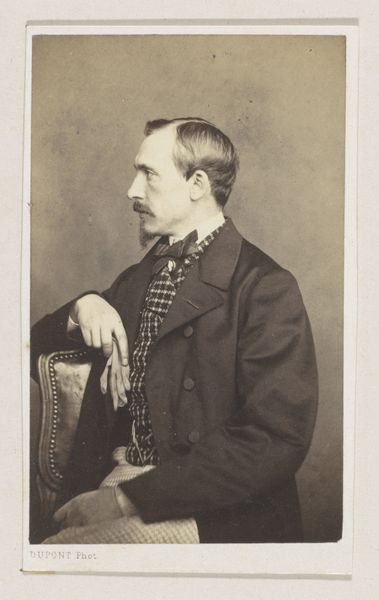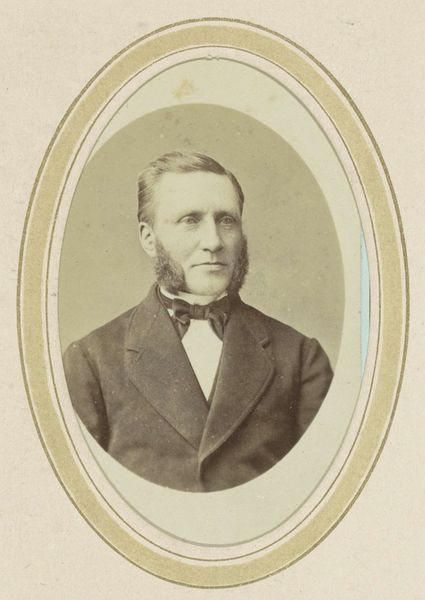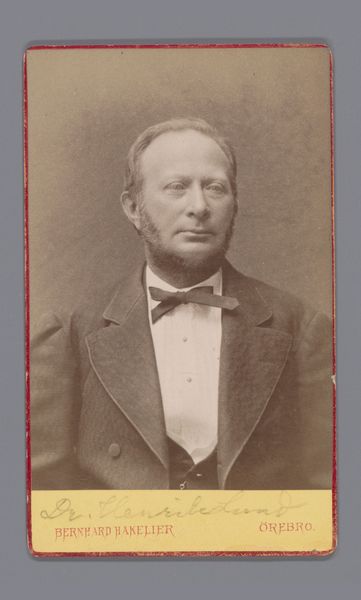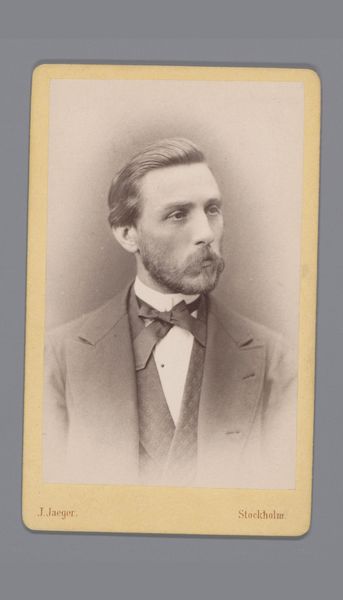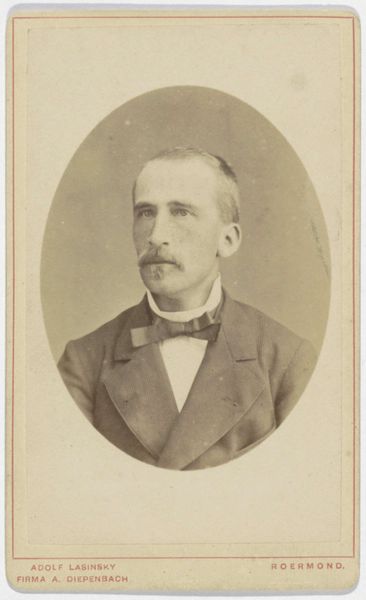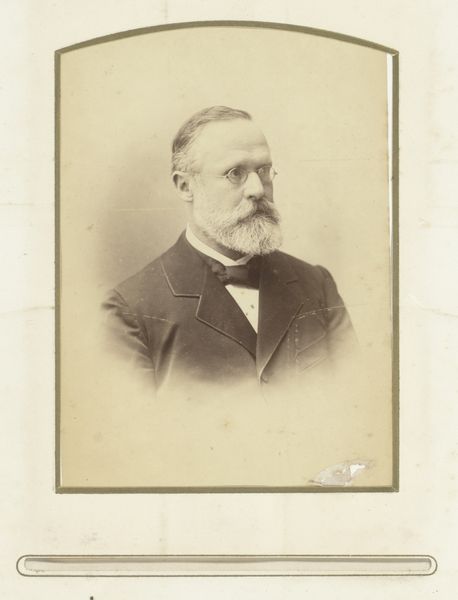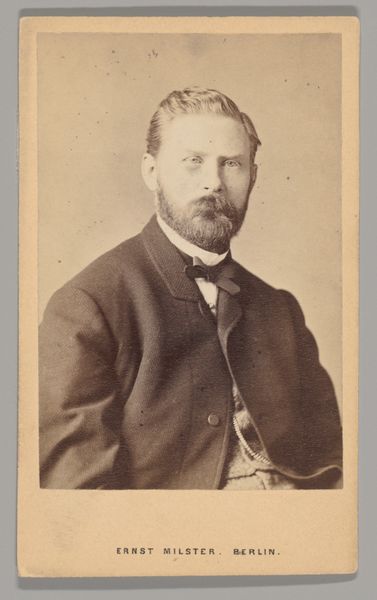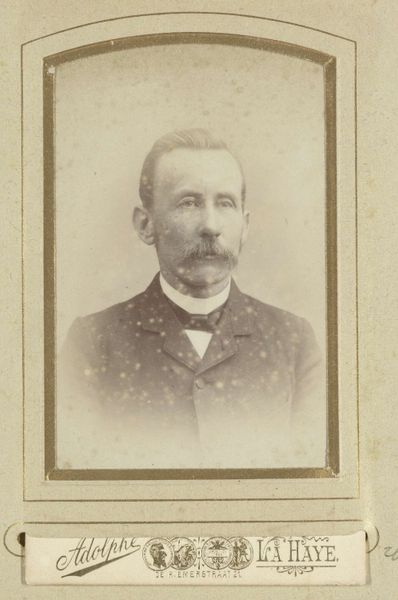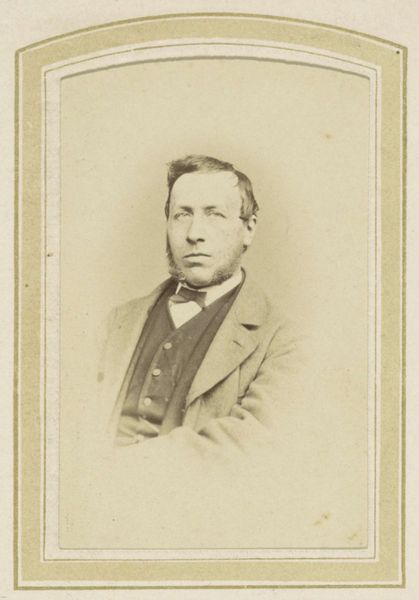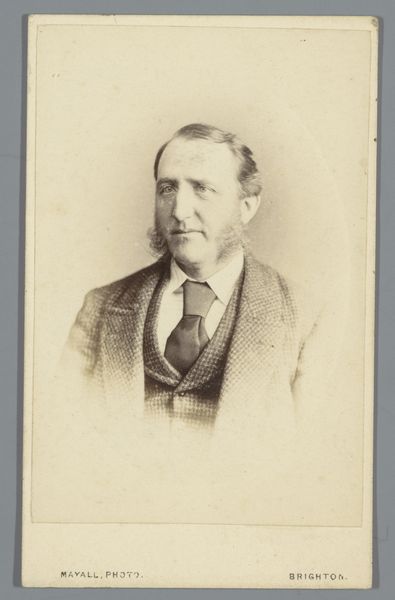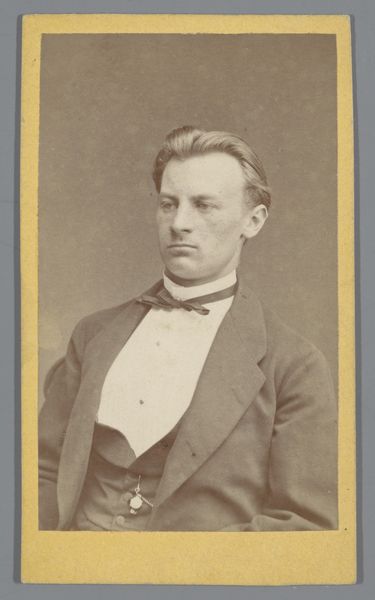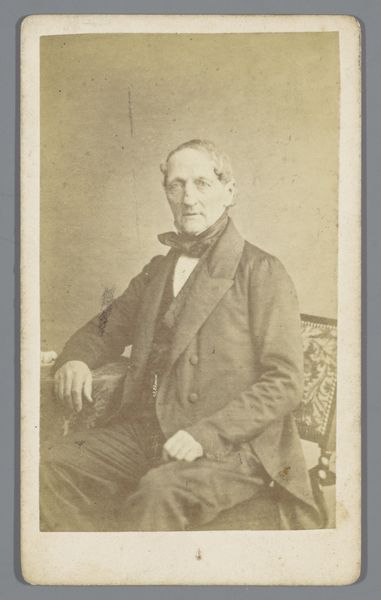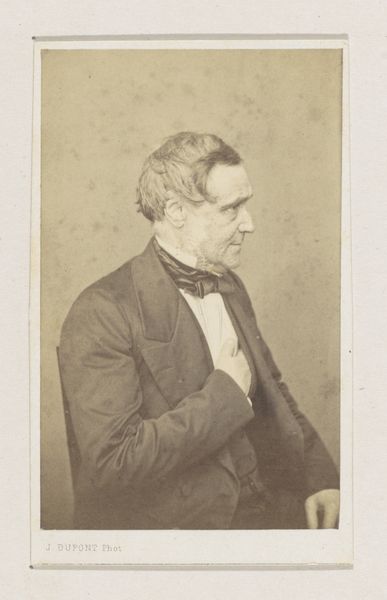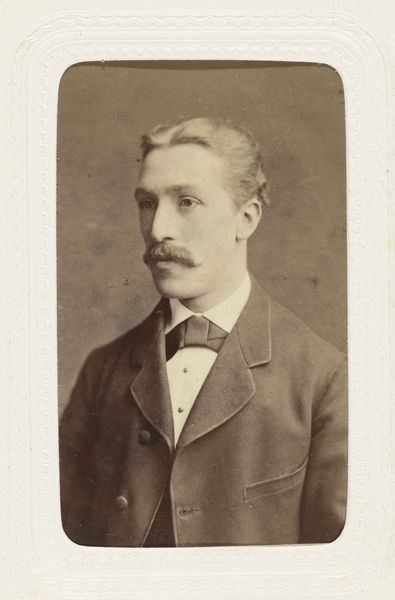
daguerreotype, photography
#
portrait
#
daguerreotype
#
photography
#
realism
Dimensions: height 101 mm, width 62 mm
Copyright: Rijks Museum: Open Domain
Editor: Here we have Joseph Dupont's 1861 photograph, "Portrait of the painter Jean Michel Ruyten." There's a melancholic feel to it; the soft focus lends it a dreamlike quality, wouldn't you agree? What stands out to you? Curator: Indeed. Consider the meticulous details: the almost severe gaze averted from our own, the careful arrangement of clothing— the watch chain hinting at an entire realm of time and lived experience just out of frame. The subject is very clearly presented with both professional authority and private, internal reflection. Does this resonance with any historical images? Editor: It’s reminiscent of other photographic portraits from that era, certainly. The attire, the stern expression... How much is pretense and how much genuine revelation, though? Curator: An excellent question. The bow tie might be the clue! Is it a casual or rather deliberate presentation of “Artiste”? Bow ties signify the bourgeoisie or a form of artistic or rebellious stance against established norms, during a time when social identities were often visibly performed. Editor: So, you are suggesting the bow tie and severe gaze can signify cultural rebellion and that’s not immediately obvious? Curator: It’s a signifier of his intention, the careful crafting of persona in a nascent age of photography. Editor: It gives a fresh way of thinking about how much an artist might have felt a need to project. Thanks for bringing it to light! Curator: My pleasure; and a reminder that every image holds layers waiting to be decoded!
Comments
No comments
Be the first to comment and join the conversation on the ultimate creative platform.
